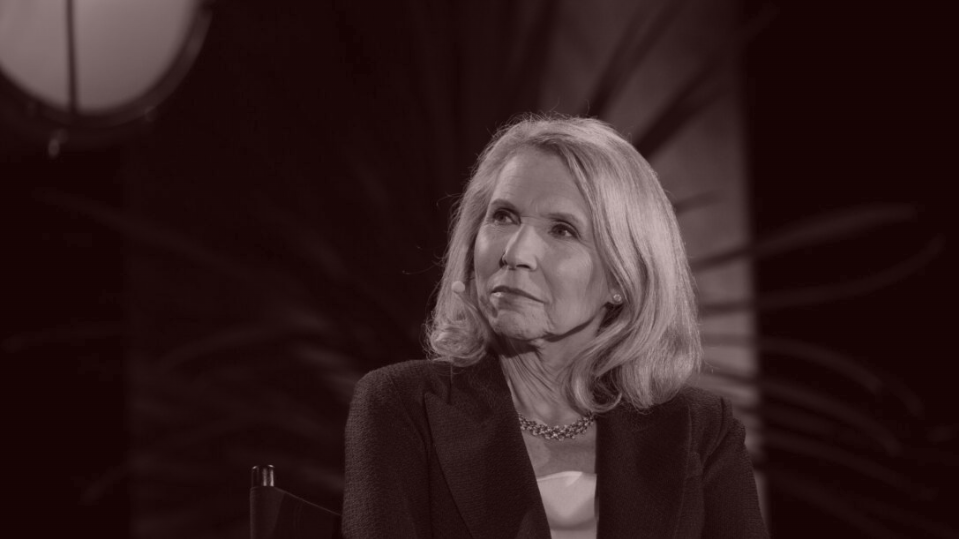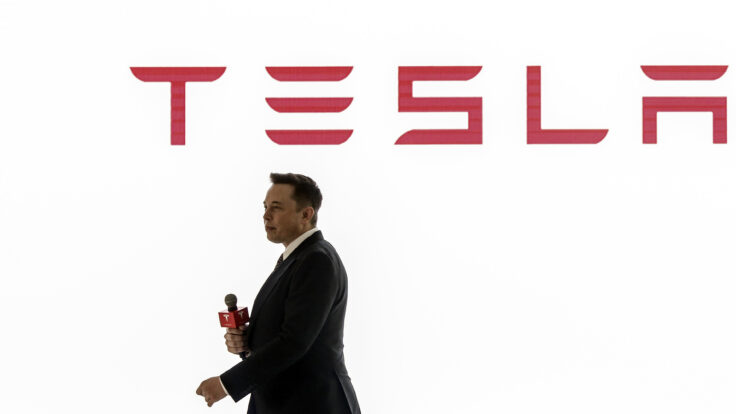 |
 |
|
Welcome to Dry Powder. I’m Bill Cohan.
Every time I think I’m out, to paraphrase an aging Michael Corleone, I get pulled back into the Paramount Global M&A saga—one of the most bizarre media transactions in modern history. Today, I have some news on Shari Redstone’s latest deal ripple, and the tsunami that could ensue. This bizarre late-stage chapter also features a cameo from the long-suffering investor Mario Gabelli, who might laugh last after all.
But first…
- A little dish from over at Lazard: I’m sorry but I can’t resist a good story in the Financial Times about Lazard, where I spent six years as a banker back in the 20th century and about which I wrote a bestselling book in the 21st. (Humblebrag: The Last Tycoons was named the FT/Goldman Sachs Business Book of the Year in 2007.)
Earlier this week, Joshua Franklin and Sujeet Indap, two FT journalists—Sujeet once worked at Lazard, too—reported on a number of seemingly petty grievances that bankers at the firm had with Lazard’s newish C.E.O. Peter Orszag. Peter, they note, has moved his office away from all the other Lazard employees to a higher floor in 30 Rock, demanded that his bankers become more productive, and invited former Evercore C.E.O. Ralph Schlosstein to provide some advice about productivity and performance. Evercore, which is nearly 30 years old, has a market value of $7.7 billion while Lazard, which is 176 years old, has a market value of $4.4 billion.
I have been rooting for Peter to succeed since he took over from Ken Jacobs last October. Since then, the Lazard stock price is up nearly 30 percent. I never thought much of Jacobs as the C.E.O.—he was a good banker when we were both there together, and did a fine job executing the deals that Felix Rohatyn handed to him on a silver platter. But he’s not a leader of Wall Street bankers, and the firm more or less floundered during his 14-year tenure, although he did manage to enrich himself mightily along the way.
Orszag has a better temperament to lead a group of often irascible Lazard bankers. He was Obama’s director of the Office of Management and Budget and has a natural gravitas and massive network. Franklin and Indap report that the troops are getting restless and resentful under Orszag’s leadership, but Lazard bankers have always been restless—it’s part of the D.N.A. of the firm. They often didn’t like the things that Michel David-Weill, the longtime patriarch, did before Bruce Wasserstein snookered him and took over after September 11. They didn’t always like Rohatyn, except when he was bringing in tons of business, and even then, they often resented him. They second-guessed Bill Loomis during his brief tenure, too.
Orszag’s challenge, of course, is that he is the first outsider to run the place who is not known for his M&A prowess—a challenge at a place like Lazard, which is all about dealmaking. I think that’s the concern under the surface that the FT has uncovered. Now we get to sit back and watch to see if this is the beginning of the end for Orszag or whether he’ll be able to consolidate his power despite the rumblings on the lower floors of 30 Rock.
|
|
And now, one more time, Shari…
|
 |
| The Shari Soap Opera’s Final Twist |
| Unimaginably, Shari Redstone has reintroduced a dealpoint that threatens to nuke the Paramount sale. Will Gerry and Ellison blink? And will Mario Gabelli, the aggrieved longtime investor, finally wet his beak? |
|
|
|
| On Tuesday, Paramount Global’s three-headed interim C.E.O. monster, composed of George Cheeks, Chris McCarthy, and Brian Robbins, presented its plan for turning the company around under their continued leadership, assuming Shari Redstone, the ultimate decider, decides not to sell the company. The dynamic trio talked about cutting $500 million in costs, for starters, selling non-core assets, and considering a joint venture for Paramount+, the money-losing streaming business. (The Paramount Global stock traded down a few percent on the news.)
Remarkably, left unmentioned in this bizarre forced march was the company’s nearly consummated deal with Skydance’s David Ellison and RedBird’s Gerry Cardinale. As my partner Matt Belloni reported on Monday night, Shari has been sitting on the sweetened offer of $2 billion for National Amusements, the family’s holding company that owns her controlling stake in Paramount Global, and $15 per share for the non-Redstone shareholders, plus $1.5 billion in debt reduction, among other part of the complex deal. As Matt noted, Redstone materfamilias was wavering as recently as Sunday night. In fairness, I suppose, she just got the final proposal over the weekend, and it is truly an existential decision for her.
|
|
A MESSAGE FROM OUR SPONSOR
|
 |
|
Range Rover Sport. As innovative as it is influential.
|
|
|
| The problem that’s rapidly emerging is that Shari appears afraid of anticipated shareholder litigation—and, in particular, having to return to shareholders, through subsequent litigation in Delaware court, the financial premium that she has fought so hard to win from Ellison/RedBird. In the meantime, she has devised a strategy: She wants the majority of the non-Redstone voting “A” shareholders to approve the Ellison/RedBird deal, or potentially a vote by written consent of all Paramount shareholders, both A and B, although this seems like an idea that would be dead on arrival, given that the B shareholders don’t have voting stock. (A spokesman for National Amusements declined to comment.)
Let’s focus on the idea that is at least plausible, if unpopular, with the Ellison/RedBird crowd: the approval of their deal by the majority of the minority voting shareholders. There are 40.7 million A voting shares, according to the company’s latest proxy statement. The Redstones own 31.5 million of those shares, or 77.4 percent. That means there are 9.2 million A shares that the Redstones don’t own. By getting the majority of the minority of the A shareholders to approve the deal, Shari would receive a form of legal absolution. Whenever the shareholder lawsuits inevitably get filed, Shari could simply point to the affirmative vote.
Shari’s demand for a majority of the minority vote was an early feature of this negotiation. It went away as the talks with Ellison/RedBird progressed, I’ve been told, but now it’s back. And it could prove to be a major stumbling block. Of course, it is one mighty big ask of the non-Redstone shareholders to approve a deal that gives Shari $2 billion in cash, a premium of more than 125 percent, but offers them and the B shareholders $15 a share, only a 25 percent premium to where the stock had been trading—and that’s before the pool of money that Ellison/RedBird have allocated to this cash tender offer gets pro-rata’d for all the shareholders who want out. In the end, I suspect, the non-Redstone shareholders will get a combination of some cash and their existing stock. And that, at least at first, will be less than $15 a share in cash.
But here’s where things get really interesting. A majority of those 9.2 million shares computes to roughly 4.7 million shares. In the fourth quarter of last year, as you may recall, long-suffering shareholder Mario Gabelli quietly increased his stake in Paramount. Gabelli acquired another 1 million A shares, bringing his stake to 5 million shares. In other words, his position now represents the majority of the minority that Shari seeks for her absolution. If Shari continues to insist on the majority of the minority vote—her legal advisor is Ropes & Gray, the tony Boston firm—Gabelli alone could effectively block the deal. Wowza.
|
|
|
| Team Ellison/RedBird, understandably, does not want such a vote to take place, given the chance it could kill the deal. According to the various people I speak with, they don’t understand why Shari isn’t just moving rapidly toward closing. And I get the sense that this could be a breaking point for them.
I wouldn’t call Shari Redstone a crafty negotiator, but she has proven for years that she can do, and will do, whatever she wants—even when it’s totally illogical. Recall, for instance, the 2019 recombining of CBS and Viacom to form Paramount Global, which she shoved through the system when few others thought it was a good idea, or the April defenestration of Paramount Global C.E.O. Bob Bakish in the middle of the sale process. Could she possibly be so fearful of shareholder litigation that she’d put at risk the chance to secure her family’s financial future, especially since the Paramount stock seems certain to tank if this thing falls apart? (This is not investment advice.)
|
|
|
| Ellison/RedBird have shown their creativity throughout the lengthy deal process and are now offering the non-Redstone shareholders $15 a share for their stock, should they want to cash out rather than take a ride on the publicly traded Paramount Global run by David Ellison and probably Jeff Shell and Jeff Zucker. So either Ellison/RedBird need to talk Shari out of this request—perhaps by offering to partially indemnify her and NAI against shareholder lawsuits—or Gerry Cardinale needs to hightail it over to Gabelli’s headquarters, in Greenwich, and walk Mario through his PowerPoint presentation. If Gerry can convince Mario that under the David/Two Jeffs regime, Paramount Global can be a $30 to $40 stock, then why the heck wouldn’t Mario stick around? If he leaves now, he gets his pro-rata’d $15 per share. That’s not that compelling at this point, to be honest.
It’ll be interesting to see who blinks first here. Will Shari back away from the demand for a majority of the minority vote? Will Ellison/RedBird offer to indemnify Shari against shareholder lawsuits? And if they do, will that be good enough for her? Can the charming and persuasive Gerry Cardinale convince Mario Gabelli that it’s worth sticking around to see what David and the Two Jeffs can do with this asset? Will Shari back the three Pep Boys, as they are being called on Wall Street, on a go-it-alone strategy?
And, by the way, what about the Sony/Apollo crew? Are they just waiting in the wings for a deal to be inked in Times Square with Ellison/RedBird so that the Paramount board’s so-called “Revlon duties” kick in, obligating them to sell to the highest and fairest bidder, which could turn out to be Sony/Apollo? All these possibilities seem equally likely or unlikely at this particular moment. I’m tempted to say stay tuned for the next episode of As the World Turns, except it went off the air in 2010, after 54 years, and real life is often more complicated than fiction, even a turgid soap opera.
|
|
|
|
| FOUR STORIES WE’RE TALKING ABOUT |
 |
| A Netflix Stunner |
| Digging into Netflix’s mysterious eleventh-hour settlement. |
| ERIQ GARDNER |
|
 |
|
 |
|
 |
|
|
|
|
|
 |
|
|
|
Need help? Review our FAQs
page or contact
us for assistance. For brand partnerships, email ads@puck.news.
|
|
You received this email because you signed up to receive emails from Puck, or as part of your Puck account associated with . To stop receiving this newsletter and/or manage all your email preferences, click here.
|
|
Puck is published by Heat Media LLC. 227 W 17th St New York, NY 10011.
|
|
|
|













